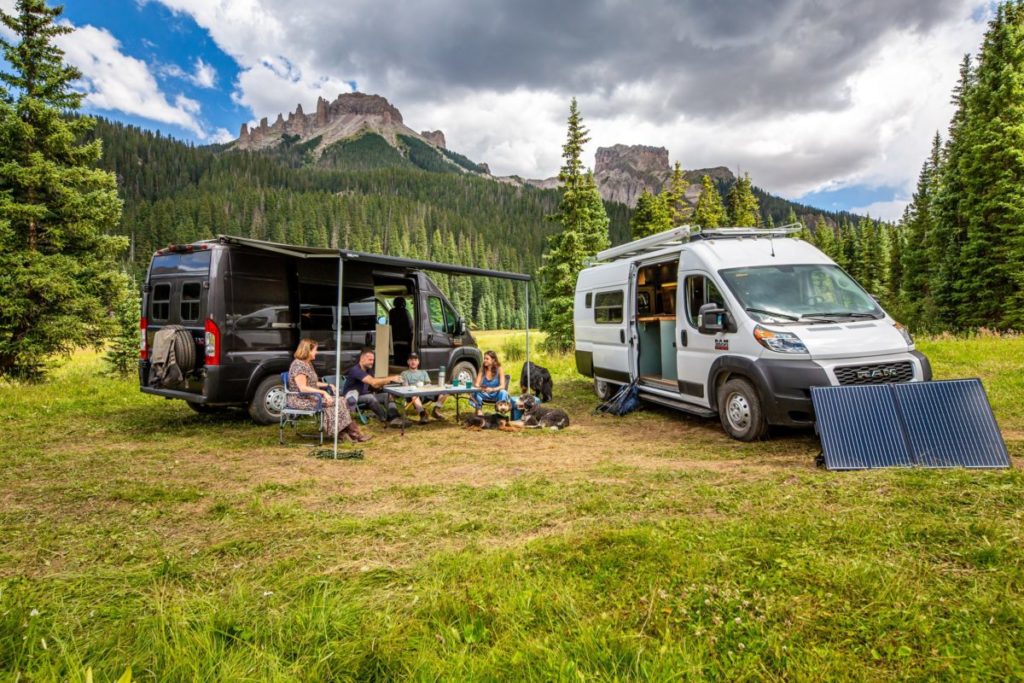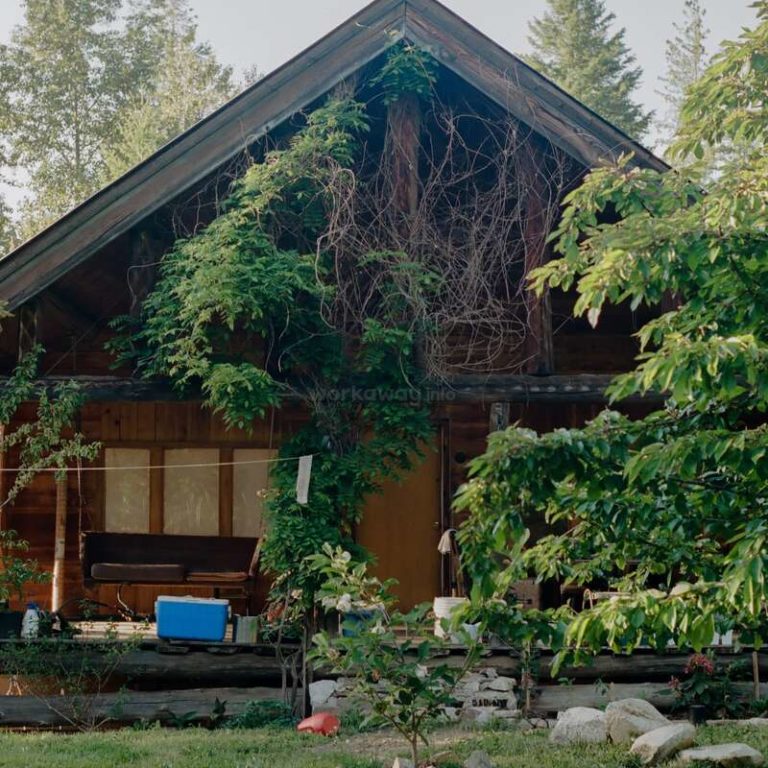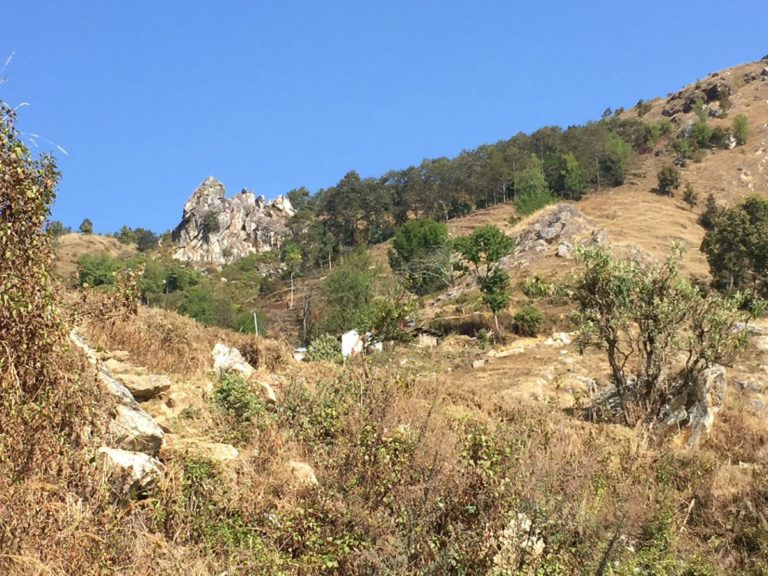Living off the grid requires a certain level of adaptability, as it involves embracing unconventional lifestyle choices and self-sufficient practices.
From generating your own energy to growing your own food, living off the grid demands creativity, resourcefulness, and resilience.
By adopting an off-grid mindset, individuals can not only reduce their environmental impact but also cultivate a stronger connection with nature and their community.
We will explore the essence of adaptable living through the lens of off-grid life, providing actionable tips for those looking to transition to a more sustainable way of being.
Embrace change as a natural part of life
Off-grid living often involves dealing with unexpected challenges and changes in the environment, energy sources, or other aspects of life. By embracing change as a normal part of life, you can develop the flexibility and adaptability needed to thrive in this lifestyle.
From fluctuations in the weather to shifts in the energy market, the off-grid lifestyle requires a certain level of flexibility and adaptability to thrive.
Embracing change as a normal part of life can help you develop the resilience and resourcefulness needed to navigate these challenges with ease.
For example, if a severe storm damages your solar panels, you might need to improvise and find alternative sources of energy to keep your home running.
By embracing change and being open to new solutions, you can find creative ways to adapt and continue living off the grid with minimal disruption.
Similarly, changes in the energy market can lead to fluctuations in the cost of your energy sources, but by embracing change and being willing to explore different options, you can find ways to stay afloat and even save money in the long run.
In short, by embracing change as a normal part of life, you can develop the flexibility and adaptability needed to thrive in the off-grid lifestyle.
Be open-minded
A important aspect of adaptable living is being open-minded and willing to learn and try new things. This includes experimenting with new technologies, farming techniques, and ways of living that may be unfamiliar to you.
Embracing novelty and openness is a vital component of adaptable living.
Being open-minded and willing to learn and try new things enables you to stay ahead of the curve and effectively navigate the ever-changing landscape of modern life.
This means experimenting with cutting-edge technologies, such as renewable energy sources, sustainable agricultural practices, and innovative building materials.
It also involves embracing new farming techniques, like vertical farming and permaculture, to enhance food security and reduce your environmental footprint.
It requires being receptive to alternative lifestyles and community structures that may differ from your own.
By keeping an open mind and being willing to learn and adapt, you can unlock a wealth of new opportunities for personal growth and sustainable living.
Practice mindfulness
Mindfulness is the practice of being present and fully engaged in the current moment. This can help you adapt to changing circumstances and find joy in the simple things in life.
Mindfulness is the practice of being present and fully engaged in the current moment, paying attention to your thoughts, feelings, and sensations without judgment or distraction.
This conscious awareness allows you to cultivate a deeper understanding of yourself and your surroundings, and adapt to changing circumstances with greater ease and flexibility.
By focusing on the present moment, you can uncover simple pleasures and sources of joy that might have otherwise gone unnoticed.
With regular mindfulness practice, you can develop a more resilient and hopeful outlook, even in the face of challenges and difficult emotions.
By being fully present and engaged in your life, you can find greater meaning, purpose, and happiness in your daily experiences.
Foster a sense of community
Community is a vital component of off-grid living, as it provides support, resources, and a sense of connection with others. By fostering a sense of community, you can build a network of like-minded individuals who can help you navigate challenges and opportunities.
Building a strong community is essential for a successful off-grid lifestyle.
A supportive community provides a network of like-minded individuals who can offer guidance, resources, and emotional support.
This sense of connection is especially important when facing challenges and opportunities that arise with off-grid living.
For example, a community member may have experience with a particular type of renewable energy system and be able to offer valuable advice or provide access to resources that can help you achieve your off-grid goals.
A community can provide a sense of belonging and camaraderie that can help alleviate the feelings of isolation that sometimes come with living off the grid.
By fostering a sense of community, you can create a reliable and dependable network of individuals who can help you thrive in your off-grid lifestyle.
Cultivate self-reliance
Off-grid living often requires individuals to be self-reliant and resourceful in order to meet their basic needs. By developing skills such as gardening, cooking, and fixing things around the house, you can become more self-sufficient and resilient.
Living off the grid not only requires a different mindset, but also a different set of skills.
Self-reliance and resourcefulness are key to meeting your basic needs in an off-grid lifestyle.
To achieve this, you’ll need to develop skills such as gardening, cooking, and fixing things around the house.
Gardening allows you to grow your own food, which is not only more cost-effective, but also healthier and more satisfying.
Cooking from scratch enables you to control the ingredients and preparation methods, ensuring that your meals are nutritious and delicious.
Furthermore, being able to fix things around the house saves you money and reduces waste, promoting a more sustainable lifestyle.
By developing these skills, you’ll become more self-sufficient and resilient, capable of thriving in an off-grid environment.
Practice gratitude
Gratitude is the practice of recognizing and appreciating the good things in life, no matter how small they may seem. By cultivating a sense of gratitude, you can develop a positive mindset and find joy in the simple things in life.
Gratitude is a powerful practice that can transform your life by helping you recognize and appreciate the good things in life, no matter how small they may seem.
By cultivating a sense of gratitude, you can develop a positive mindset and find joy in the simple things in life.
This can lead to a more fulfilling and meaningful existence, as you begin to see the world through a lens of appreciation and thankfulness.
For example, when you wake up in the morning, take a moment to notice the softness of your bed or the warmth of your blanket.
These small pleasures can bring a sense of comfort and joy, and they are often overlooked in our busy lives.
Similarly, when you take a walk outside, notice the beauty of the natural world around you – the sun shining, the trees swaying in the breeze, the sound of birds singing.
These small wonders can bring a sense of peace and contentment, and they are available to us every day.
By practicing gratitude, you can learn to see the good in every situation and find joy in the simple things in life.
This can lead to a more hopeful and optimistic outlook, as you begin to see the world as a place of abundance and opportunity.
So take a moment each day to reflect on the good things in your life, no matter how small they may seem.
By doing so, you can cultivate a sense of gratitude and find more joy and fulfillment in your life.
Embrace simplicity
Off-grid living often involves simplifying your life and living more intentionally. By embracing simplicity and living with less, you can reduce your carbon footprint, save money, and live a more sustainable lifestyle.
Living off the grid requires a shift in mindset, one that values simplicity and intentional living.
By embracing a minimalist lifestyle, you can reduce your carbon footprint, save money, and create a more sustainable future for yourself and your community.
This means letting go of unnecessary possessions, reducing waste, and living more efficiently.
For example, you might consider using solar power instead of fossil fuels, growing your own food, and conserving water.
By living with less, you’ll not only reduce your environmental impact but also gain a sense of fulfillment and purpose that comes from living intentionally.
In addition to the environmental benefits, simplifying your life can also lead to significant financial savings.
By living off the grid, you won’t have to pay for electricity, gas, or other utility bills.
Instead, you can focus on investing in renewable energy sources, such as solar panels and wind turbines, which can provide long-term savings and energy independence.
Moreover, living with less can also lead to greater personal fulfillment and a stronger sense of community.
By embracing a simpler way of life, you’ll have more time and resources to engage with your local community, build meaningful relationships, and pursue your passions.
Overall, off-grid living requires a willingness to embrace simplicity and live more intentionally, but the benefits of doing so are numerous and well worth the effort.
Embrace change
Off-grid living is all about embracing change and adapting to new situations. By adopting a flexible mindset and being open to new experiences, you can thrive in your off-grid lifestyle.
Off-grid living is a journey that requires embracing change and adapting to new situations.
It is a lifestyle that is free from the constraints of traditional society and its reliance on modern technology and infrastructure.
To thrive in this lifestyle, it is essential to cultivate a flexible mindset and be open to new experiences.
This means being willing to try new things, experiment with different methods, and learn from your mistakes.
It also means being open to new ways of thinking and being willing to challenge your preconceptions.
In off-grid living, change is constant, and adaptability is key.
From seasonal changes in the weather to unexpected breakdowns in equipment, life off the grid is full of surprises.
To navigate these challenges, you must be willing to think on your feet and find creative solutions to unexpected problems.
This may require you to learn new skills, such as repairing a broken well pump or identifying edible plants in the wild.
By embracing change and adapting to new situations, you can unlock the full potential of off-grid living.
You can live a more self-sufficient and sustainable lifestyle, surrounded by nature and filled with a sense of purpose.
You can forge your own path, free from the constraints of modern society, and create a life that is truly unique and fulfilling.
So, embrace the change and let your off-grid adventure begin!
Create your own curriculum
By adopting an off-grid mindset, you can create your own curriculum for living a fulfilling and meaningful life. Whether it’s learning new skills, pursuing hobbies, or setting personal goals, you can curate your own unique path to a fulfilling life.
Adopting an off-grid mindset can be a powerful tool for creating a fulfilling and meaningful life.
By rejecting the conventional wisdom of mainstream society, you open yourself up to a world of possibilities and opportunities for personal growth.
One way to start is by learning new skills, such as gardening, cooking, or woodworking, which can help you become more self-sufficient and resourceful.
Pursuing hobbies and interests that bring you joy and fulfillment can also be a key part of an off-grid lifestyle.
This might include activities like painting, playing music, or hiking.
Setting personal goals and challenging yourself to achieve them can help you develop a sense of purpose and accomplishment.
Whether it’s starting a small business, learning a new language, or training for a marathon, the key is to create your own unique curriculum for living a fulfilling life.
With an off-grid mindset, the possibilities are endless, and the only limit is your own imagination and creativity.
Connect with nature
Off-grid living often involves spending more time outdoors and connecting with nature. By developing a connection with nature, you can cultivate a sense of awe and wonder, improve your physical and mental health, and experience a greater sense of fulfillment and joy.
Living off the grid not only means disconnecting from the grid but also connecting with nature.
When you step out of your door, you are greeted by the vastness of nature.
The birds sing, the wind blows, and the sun shines bright.
With every step you take, you feel the ground beneath your feet, and with every breath you take, you feel the freshness of the air.
You begin to realize the intricate connections that exist between all living beings and the earth.
You start to appreciate the beauty of nature, and as you do so, you feel a sense of awe and wonder.
Living off the grid also has several physical and mental health benefits.
Being outdoors exposes you to sunlight, which is essential for your body to produce vitamin D.
Vitamin D helps maintain strong bones and a healthy immune system.
The fresh air also boosts your immune system and clears your mind.
Without the noise pollution of city life, you are able to focus better and hear the sound of your own thoughts.
As you become more self-sufficient, you develop a sense of fulfillment and joy.
You begin to appreciate the simple things in life, and life becomes more meaningful.
You become healthier, happier, and more fulfilled.
Living off the grid provides an opportunity to develop a deep connection with nature, improve your physical and mental health, and experience a greater sense of fulfillment and joy.
It takes courage to step out of your comfort zone and embrace a new lifestyle, but the benefits are well worth the effort.
So, if you’re looking for a change, take the first step and see where the journey takes you.
Want More? Dive Deeper Here!
Hey there! If you’re the type who loves going down the rabbit hole of information (like we do), you’re in the right spot. We’ve pulled together some cool reads and resources that dive a bit deeper into the stuff we chat about on our site. Whether you’re just killing time or super into the topic, these picks might just be what you’re looking for. Happy reading!






